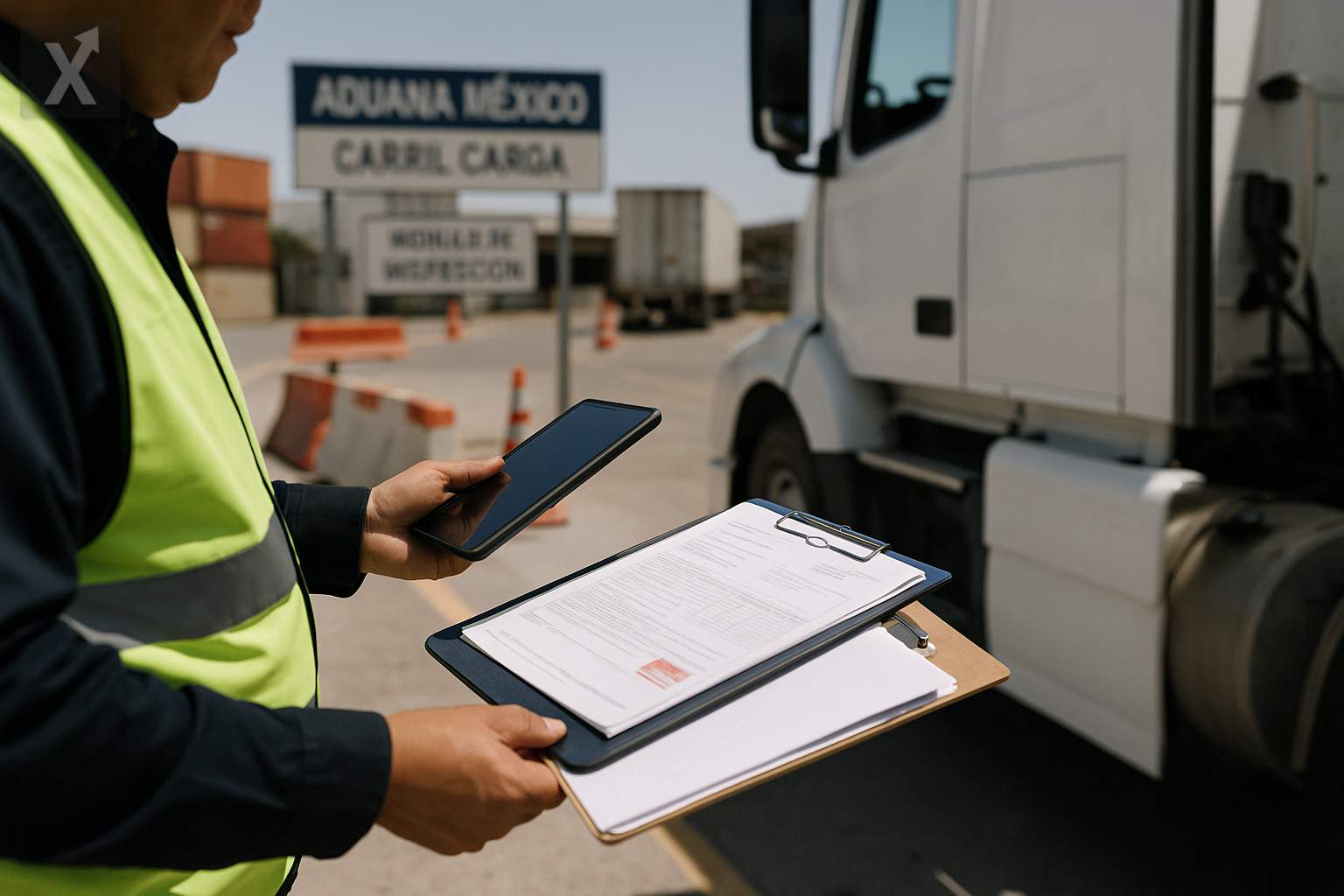Customs Reform Advances in the Chamber of Deputies; Private Sector Raises Concerns Over Costs, Certainty, and Competitiveness

The Chamber of Deputies has approved a sweeping reform of the Customs Law, arguing that it will modernize processes, reduce opportunities for smuggling, and strengthen revenue collection. The package, which will now move on to the Senate, is significant given the importance of foreign trade in the economy: almost seven out of every ten pesos of GDP are connected to exports and imports, and customs offices remain a crucial source of revenue and oversight. While the government highlights digitalization and the harmonization of systems, various business chambers are urging careful calibration of sanctions, operational burdens, and regulatory scope so as not to hinder productive activity in a context of manufacturing relocation.
According to Mexico’s National Customs Agency, between January and August 2025, customs revenue totaled 953.75 billion pesos, a real increase of 18.6% compared to the same period the previous year. Sustained by that momentum, the authorities are promoting the creation of a Customs Council, tightening requirements on agents and users, and proposing a simplified framework for courier and parcel services in order to curb undervaluation and transaction-splitting in e-commerce. The official emphasis is on digitalization, database integration, and risk management processes to make operations more traceable.
Business associations, while acknowledging advances in interoperability and standardization, warn of potential side effects. A key area of concern is Article 86A, which would require duties to be paid before goods cross the border, and again upon specifying the customs regime, with any refunds requested afterwards. This would mean immobilizing capital and multiplying paperwork, impacting cash flow, particularly in supply chains operating with just-in-time inventories. There is also uncertainty about Article 135B, as it suggests that transformation processes conducted within strategic bonded warehouses could be taxed, which would alter the essence of these mechanisms designed to attract investment.
Sanctions are another focal point. Representatives of the customs sector believe that fines ranging from 250% to 300% of the value of goods could be disproportionate for administrative infractions and could open the door to litigation over a possible confiscatory nature. Additionally, there are questions about precautionary embargoes for labeling issues, which could increase from marginal penalties to significantly higher amounts, thereby raising logistics costs and timelines in supply chains where imported inputs represent the lion’s share of operations.
For customs brokers, the broadening of their responsibilities—including the comprehensive accuracy of the declaration, correct calculation of duties, and the proper assignment of regulatory regime—could result in increased compliance costs, redundant controls, and more litigation. Industries with high technical complexity—such as chemicals, pharmaceuticals, and agribusiness—would feel these impacts most, due to interpretation of regulations and the need to compile specialized technical documentation.
In export manufacturing, which accounts for more than half of Mexico’s exports and millions of formal jobs, there is concern about the impact on IMMEX operations, in particular regarding virtual transfers that streamline intra-company flows. Effects are also anticipated in the Authorized Economic Operator certification if reauthorization is restricted for minor infractions, which could weaken mutual recognition agreements with USMCA partners and increase clearance costs by losing key trade facilitation benefits.
The bill incorporated several targeted adjustments for increased long-term certainty: the duration of customs broker licenses and agency authorizations will be extended from 10 to 20 years, with the possibility of a similar extension; professional recertification will shift from every two years to every three; and duties and compensatory fees can now be secured with letters of credit in addition to customs accounts. Transitional articles clarify that these provisions will also apply to existing authorizations. Although positive, these changes do not address the most controversial aspects concerning sanctions and operational burdens.
The debate comes amid a mixed outlook for Mexico: investment linked to nearshoring remains a major driver, but bottlenecks persist in border infrastructure, port capacity, energy, and water. Peso volatility and a slowdown in the US industrial cycle are putting extra pressure on margins and inventories. Meanwhile, the USMCA establishes commitments around trade facilitation, risk management, and customs cooperation that require clear, predictable rules. Any overregulation that increases clearance times could erode the cost and geographic advantages that the country currently enjoys.
Going forward, the legislative challenge will be to fine-tune the reform to strike a balance between oversight and competitiveness. One avenue is to double down on risk management, intelligence, and traceability—instead of generalized sanctions—in order to focus enforcement on high-risk operations, while easing burdens for compliant actors. Legal certainty and proportional fines will be critical in preventing widespread litigation, maintaining investment flows, and seizing the window of opportunity from the global reshuffling of supply chains.
In summary, the reform seeks to modernize customs and boost revenue, but its final design must avoid friction that would increase the cost of foreign trade. The Senate will have the chance to adjust sanctions, payment timelines, and responsibilities to ensure that efforts to combat evasion do not translate into higher costs, delays, and uncertainty for the businesses driving Mexico’s export momentum.
Final observation: Striking the right balance between fiscal control and trade facilitation will be key in a year of intense competition for investment. If the Senate moderates sanctions and strengthens risk management, the reform could enhance traceability without undermining competitiveness; if not, it could increase timelines and working capital requirements—just as the country looks to solidify its nearshoring advantage.





